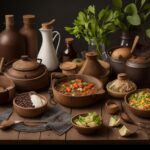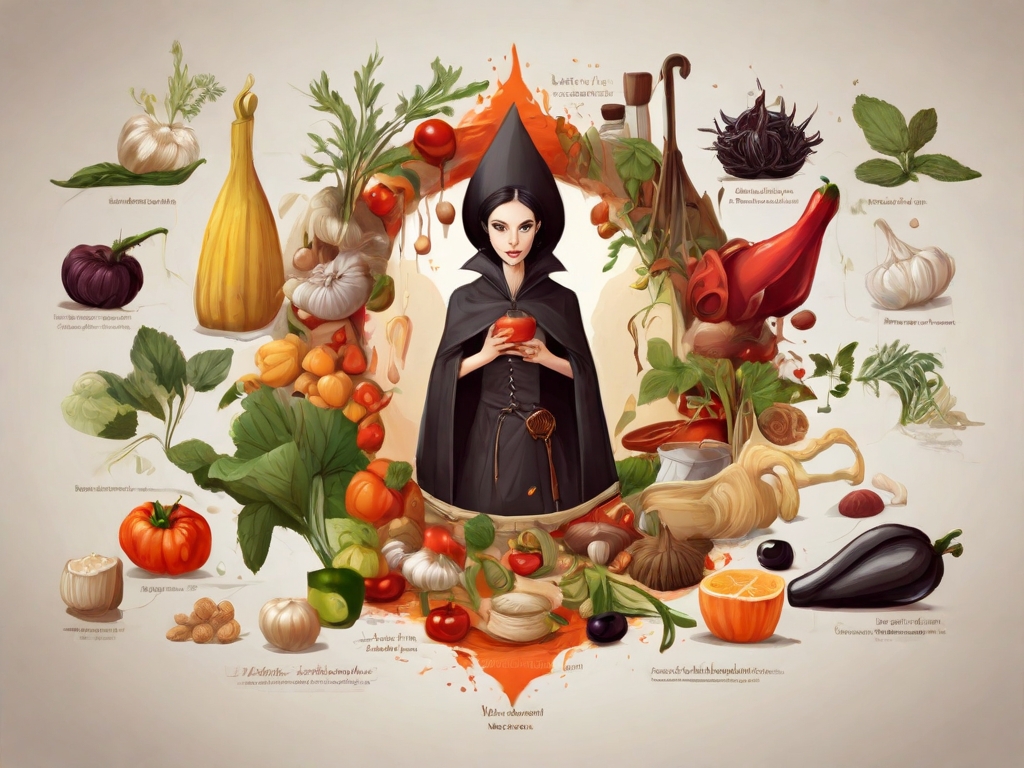In the vibrant and diverse world of gastronomy, dishes and recipes are not merely a matter of flavors and textures; they also carry stories, myths, and traditions deeply rooted in local folklore. This relationship between food and folklore is an integral part of the cultural identity of many communities worldwide. In this article, we will delve into the fascinating intersection between gastronomy and folklore, exploring how local myths have influenced culinary traditions and enriched our gastronomic experiences.
The Interconnection between Gastronomy and Folklore
Gastronomy and folklore are closely intertwined, forming a complex fabric that reflects the history, geography, and beliefs of a society. Since time immemorial, myths and legends have shaped the way we cook, eat, and understand the world around us. Behind every traditional dish, there is a story to tell, a narrative woven through ingredients, preparation techniques, and culinary rituals.
Ingredients as Protagonists of Legends
Basic ingredients in cooking often come with stories, myths, and legends that elevate them to a mystical status. Take, for example, garlic, a common ingredient in many kitchens around the world. Beyond its distinctive flavor, garlic has been the subject of numerous myths and superstitions throughout history. In European mythology, garlic was believed to ward off vampires and protect people from evil forces. This belief is reflected in the inclusion of garlic in traditional recipes such as French aioli or Spanish garlic soup.
Other ingredients, such as salt, olive oil, or aromatic herbs, also have intriguing stories that date back to ancient times. These elements, beyond their role in cooking, have been valued for their supposed medicinal, magical, or spiritual properties. Thus, gastronomy becomes a means through which ancestral beliefs and practices are transmitted and preserved.
Myths and Rituals at the Table
The dining table is a stage for a variety of myths and rituals that enrich the gastronomic experience. For centuries, communities have celebrated festivals, rituals, and ceremonies centered around food, imbuing it with meaning beyond nutrition. One of the most well-known examples is the celebration of Thanksgiving in the United States, where roasted turkey and pumpkin pie take center stage in a festive dinner that commemorates fellowship and gratitude.
In other cultures, such as Japanese culture, the act of eating is governed by a series of rituals and etiquette rules rooted in local folklore. From the meticulous art of sushi preparation to the tea ceremony, every gesture at the table is imbued with cultural significance and symbolism.
Beliefs and Dietary Taboos
In addition to myths and rituals, many cultures have dietary beliefs and taboos that influence what is eaten and how food is prepared. These restrictions may be based on religious, ethical, or superstitious considerations. For example, in Jewish culture, kosher food follows strict dietary laws that prohibit certain foods and preparation methods.
Similarly, in some indigenous communities in Latin America, there are dietary taboos related to hunting, fishing, and the gathering of certain wild foods. These restrictions are rooted in the worldview and relationship with nature of these cultures, aiming to preserve ecological and spiritual balance in the world.
The Influence of Folklore on Modern Cuisine
Although many of these myths and traditions have their roots in the past, they continue to exert a powerful influence on modern cuisine. Chefs and cooks around the world draw inspiration from local stories and legends to create innovative dishes that pay homage to tradition and culture. In many cases, this involves a reinterpretation of traditional recipes, as well as the incorporation of ancestral ingredients and culinary techniques into contemporary cooking.
The growing popularity of ethnic cuisine and the quest for authenticity have led to a renewed interest in local culinary traditions and the folklore associated with them. Restaurants specializing in regional cuisine, artisanal food markets, and gastronomic festivals are examples of how folklore continues to play an important role in promoting and preserving culinary traditions.
Conclusion
In conclusion, the relationship between gastronomy and folklore is a tangible manifestation of the richness and diversity of human culture. Through myths, legends, and culinary traditions, communities transmit their history, values, and worldview across the globe. By exploring this intersection between food and culture, we can better appreciate the depth and meaning behind every dish that reaches our table. Gastronomy thus becomes a bridge that connects the past with the present, inviting us to savor the history and folklore of each bite.
Explore our e-shop and take your culinary experience to the next level! At Cooking Landia, we have carefully selected the finest kitchen utensils and products for you. From high-quality chef’s knives to durable cookware, and innovative culinary gadgets, you’ll find everything you need to equip your kitchen like a true professional. Discover our curated collection and choose the products that will make cooking even more exciting and efficient. Visit our e-shop now and turn every moment in the kitchen into an extraordinary experience! 🍳🔪🍴
More content
- Gastronomía egipcia: dieta y recetas ancestrales

- Comida Callejera en el Mundo: Historia y Platos Típicos

- Historia del Chocolate: De los Aztecas al Presente

- Culinary Globalization: Exploring 6 Iconic World Dishes

- Sustainable Dishes: Gastronomic Trends for a Greener Future

- The Most Impactful Gastronomic Trends Shaping the World

- Myths and Legends: The Magical Stories Behind Foods

- Symbolism of Food: The Meaning in Every Bite

- Iconic Dishes of Spanish Cuisine by Region
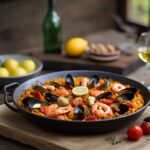
- Exploring Flavors: Top 10 Typical Dishes of Latin America

- Perfect Pairing: Wines and Dishes for Gastronomic Celebrations

- Title: Culinary Traditions in Festivals: Festive Flavors of the World

- Gastronomy and Folklore: Culinary Traditions and Local Myths
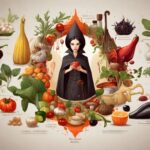
- Culinary Journey: Discovering Culinary Traditions from Different Cultures
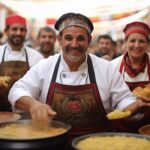
- Healthy and Affordable Recipes: Eating Well Without Spending Much

- Healthy Breakfasts: 7 Nutritious Recipes for the Whole Week

- Probiotic Foods: How Do They Improve Your Digestive Health?

- Boost Your Immune System: The Best 10 Foods

- 6 Healthy Recipes for a Balanced and Delicious Diet

- 15 Foods to Maintain a Balanced and Nutritious Diet

- Menus for Allergen-Free Diets: The Best Recipes and Nutritional Strategies

- Dietary Plans for Food Allergies: Top 10 Tips and Recommendations

- Low-Carb Diets: Top 10 Recommended Foods

- Low-Carb Diet: A Beginner’s Guide

- Easy Gluten-Free Recipes for Every Day of the Week

- Complete Guide to Gluten-Free Diets: Tips for Beginners

- Protein Sources in a Vegan Diet: What to Do?

- Vegetarianism for Beginners: Simple Steps to Adopt This Lifestyle

- Taste the Best of Africa: Top 5 Iconic Regional Recipes

- The Secrets of African Cuisine: Traditional Recipes and Flavors

- 10 Latin American Sweets: Tempting Dessert Adventures Await

- Secrets of Latin American Cuisine: Traditional and Authentic Recipes You Must Try

- Taste of the Mediterranean: 5 Key Dishes
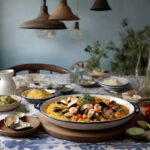
- Simple Mediterranean Cooking for Beginners: Impress Your Guests!

- Homemade Sushi: Simple Steps to Prepare Your Favorite Rolls
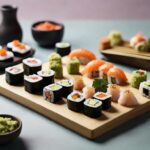
- Secrets of Asian Cuisine: Discovering 8 Traditional Techniques

- Innovation in Cuisine: Gourmet Products in Traditional Recipes

- The 10 Most Exclusive Gourmet Products You Must Try

- White Fish vs. Blue Fish: Which is Better for Your Health?

- The Secrets of Perfect Seafood Cooking: Kitchen Tricks
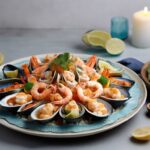
- How to Choose the Best Poultry for Your Recipes

- From Farm to Table: How to Select Quality Meat

- Complete Guide: Enhance Your Dishes with Fresh Herbs

- Revealing the Superfood Potential of Red Fruits: Benefits & Recipes

- Starting Out in the Kitchen: Pro Chef Tips for Beginners

- Unlock Your Culinary Potential: Beginner’s Guide to Essential Techniques

- Culinary Secrets Unveiled: Elevate Your Cooking with Simple Ingredient Tricks

- Master Your Kitchen: 10 Unexpected Tips for Easy Cooking

- Art of Fruit and Vegetable Cutting: Expert Techniques Revealed

- Efficiency Unleashed: Explore the Art of Mise en Place

- Mastering Healthy Cooking: Unveiling 4 Low-Fat Secrets

- Complete Guide to Cooking Methods: Everything You Need to Know

- From Fusion to Tradition: 4 Global Gastronomic Trends

- Culinary Innovations: The Most Impactful Gastronomic Trends
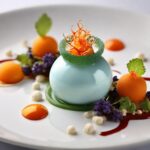
- A Gastronomic Journey: Migratory Influences in the Cuisine

- Flavors of the World: A Journey Through Diverse Culinary Influences
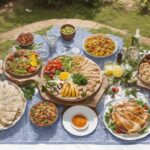
- The Evolution of Food: Traditional vs. Modern Cuisine Compared

- The Great Masters of Cuisine: Contributions to its Evolution

- Spices Through Time: Understanding Their Historical Importance

- 5 Great Gastronomic Moments: Historic Milestones in the Cuisine
